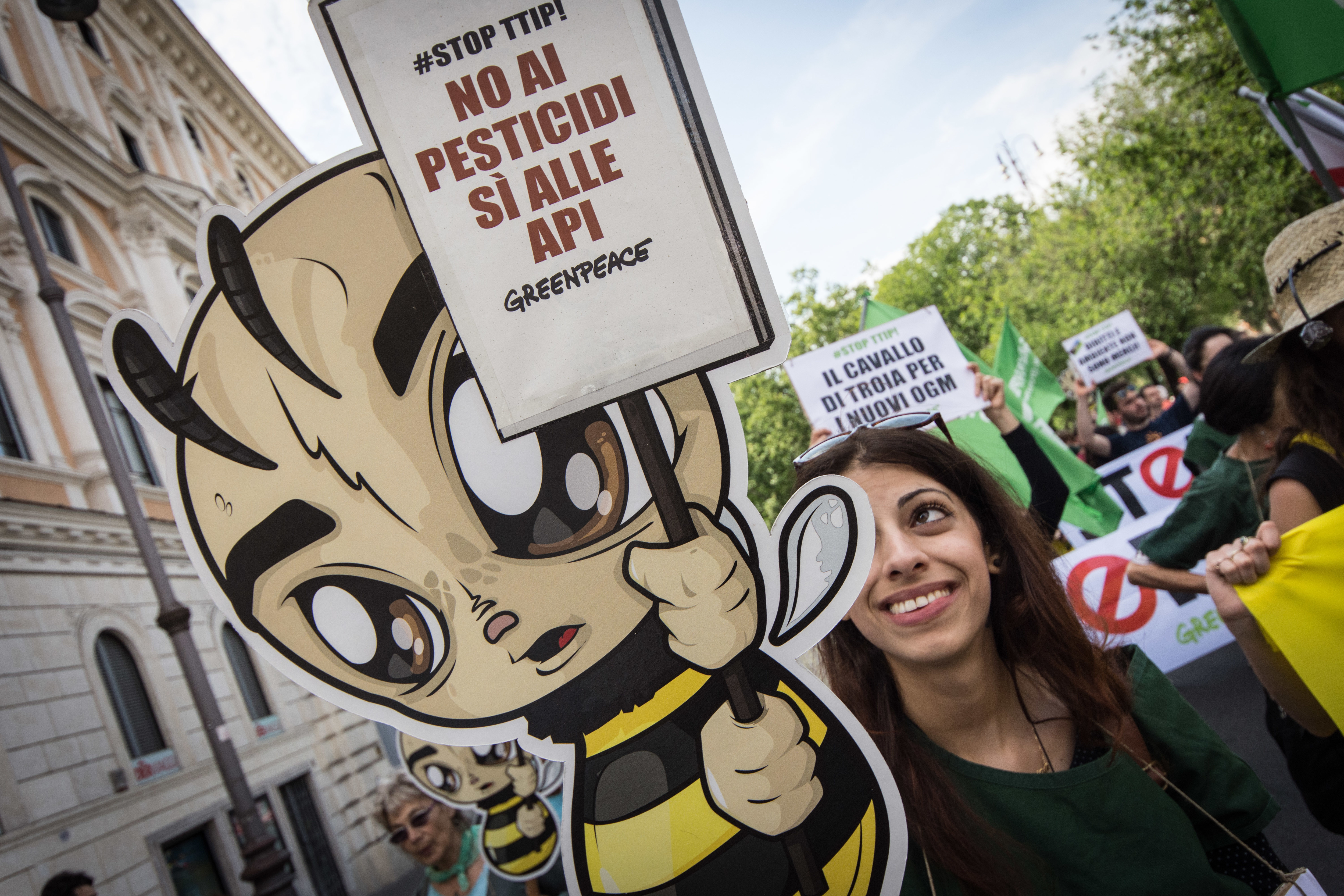Have you heard of TTIP? Well, sounds like a computer protocol or an artificial street drug, but it is something more valuable. Or more sinister. Depending on which side of the fence you are standing. Some might say it would boost the economy, but the ordinary people around Europe started to rebel. And now the politicians pushed back.

It seems that twenty years ago, everyone seemed to like trade agreements. NAFTA, CEFTA, EU and the rest of the best. But, now, even the backers of such agreements started to retreat. Such as Hilary Clinton, who is now publicly opposed to the NAFTA treaty her husband signed and enforced. What one of the antiglobalisation protesters said on the CNN, “I was among the crowd in Seattle in 1999. We didn’t know much about the effects of the globalisation anyway, just a hint that it was something band and harmful. Now, the losers of globalisation, some 17 years later, turned against it fiercely. Some are for Trump, some for Sanders, but prepare the sandbags, ‘cos the flood is coming!”

The populist anger and the leftist anger joint
Well, that is the problem. If we didn’t know about the menaces of globalisation in the developed world, now we know. Just like transition in the East: globalisation helped the poorer nations more than the richer ones. The factories were moved from the USA and Western Europe to Mexico or Eastern Europe, or China and India. Basically, it helped merely the elites of the rich countries.
TTIP, or the Transatlantic Trade and Investment Partnership, is a proposed trade agreement between the two of the economic superpowers, European Union and the USA, which would, supposedly, promote multilateral economic growth. Indeed, TTIP comprises 5 out of 7 countries involved in the G-7 group, and the economists assured us that TTIP would boost the EU’s economy by €120 billion, the US economy by €90 billion and the rest of the world by €100 billion. Really? Probably. But some other, more realistic explanations say that the majority of these aforementioned dollars will go to the already rich people. Although “TTIP aims to liberalise one-third of global trade” and “create millions of new paid jobs”, seems highly unlikely that it would benefit households at all. They will remain virually at the same level, in a sort of “secular stagnation” we mentioned in the last issue. Dean Baker of the US thinktank Center for Economic and Policy Research, namely, in his Guardian article, argued that this is exactlt the case, and another, more severe impact came from the European Parliament report, which says that the “impacts on labour conditions range from job gains to job losses, depending on economic model and assumptions used for predictions.”

The Devil in the detail
Well, how can anyone be against such lovely liberal economic unions? Basically, almost everyone was against it since some of the documents leaked. Trade unions, NGOs, charities, and environmentalists joint together with the defenders of national economies, “the new European right” (yes, the one that had 50% votes in Austria in May). The Independent described the range of negative impacts as “reducing the regulatory barriers to trade for big business, things like food safety law, environmental legislation, banking regulations and the sovereign powers of individual nations”, or more critically as an “assault on European and US societies by transnational corporations”. Well, the battle lines are now drawn. It is People vs. Transnational Corporations case. Anyone who defends the agreement, which was “secretive and undemocratic” even from the start, is now in danger to be “against the people’s wishes, the payed man from the multinational corporations, the Wall Street servant, the GMO-promoter and anti-environmentalist.” And of course, the servant of the anational elites, all of them Krabby Patty look-alikes. Or Mr Burns at least.
The Last Breaths?
Well the European Commission decided to make it all public and to disclose all the details. It proved to be even worse. The details revealed showed that there would be one final oucome: the influence of powerful lobbyists will increase, as Max Otte, a German economist put out, “a complete dis-empowerment of politics” and that, regarding labour economics, free trade agreements typically enforce lower standards and that TTIP would put European workers into direct competition with Americans (and in effect because of the NAFTA with Mexicans), which would impact European social models. For the European, already scared of “Polish plumbers” and the tide of Middle East refugees, tired of austerity measures and the US-induced World Economic Crisis, it was enough. New reports soon followed: TTIP is “a modern-day serfdom” (John McDonnell, Labour, UK), “losses in terms of net exports, net losses in terms of GDP, loss of labour income, job losses, reduction of the labour share, loss of government revenue and higher financial instability among European countries” (Capaldo, Global Development and Environment Institute). The people started pressing their governments, and finally, after thousand took to the streets, François Hollande, said officialy on the 3rd of May that “France will never accept these aggravating circumstances for its agriculture and culture just to get closer to the US market, so in this phase France says “No”.” French trade minister said that the TTIP is “probably doomed” and “Europe gets so little and the US companies get so much.” Hormone-treated beef, GMO, Hollywood devouring European film industry, these are all fears that produced anger on this side of the Atlantic. A day before Austria formally announced that TTIP was not acceptable for this country, since it was “undermining social, ecological and food standards”, said Chancellor Feimann. Angela Merkel was shocked seeing the demonstrations against it. Barack Obama is getting further away from signing it during his term, although he wanted it. Fiercely.
As the guy from Seattle said: twenty years ago you could sell this story to majority, altough not to us. Now you cannot even sell the story to the majority. Times have changed, and the European cultural and social conservativism, combined with welfare state, will not back off.